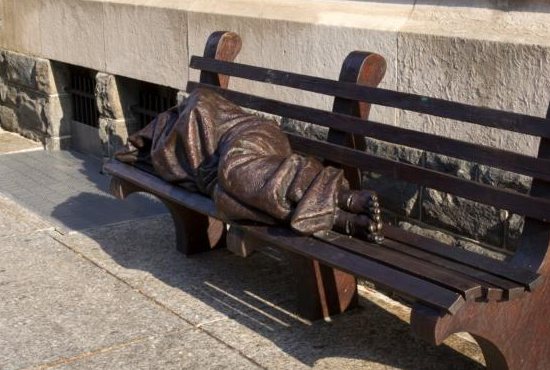
To be “woke” is now a thing. Over the past few years the media have employed this awkward grammatical construction — a simple past tense of the verb “to wake,” but used as an adjective — to describe being aware of one’s own biases, intending on overcoming them and advocating for societal change. Racism is a timely example: Someone who is woke admits his racial biases (they may even be unconscious) and aspires to be part of the solution.
At the beginning of the Third Millennium, Pope St. John Paul II led a reconciliation service in the Vatican during which he asked forgiveness for the ways the Church has sinned over her 2,000-year history. Following his example, our own archdiocese will sponsor a prayer service Dec. 2 asking forgiveness for the sin of racism. We are trying to become more woke, to change our fundamental attitude.
But being woke is not enough. It has to be accompanied by action. This is the simple yet obvious conclusion to today’s Gospel. While it would be informative to study the cultural and social differences in biblical times separating sheep and goats, we don’t need that to grasp the main point: One group did charitable actions, the other did not, and they were judged accordingly.
Here’s the unexpected part: Neither group was “woke.” When the divine King addresses both the sheep and the goats, telling the former that they fed and clothed and welcomed him while the latter did not, both reply with the same question: “Lord, when did we see you thus?” Neither seem to be aware interiorly of their deep motives. They just acted differently.
Societal sins such as racism, sexism, and xenophobia are vague and elusive, and for that reason difficult to identify, much less overcome. Feelings are deep-seated, often conflicted, and some may be beyond our ability to make “woke.” What we can more easily change is our behavior. Whatever I feel when I see persons asking for handouts at the freeway ramp, what I do matters more, at least as far as the Gospel is concerned. I can treat them with respect, courtesy and the dignity that is theirs because they too are Jesus’ representatives. “Whatever you do to the least of my brothers or sisters, you do to me.”
Further, changing our behavior, over time, gradually changes our attitude. The more charity we do, the more woke we become. Mother Teresa of Kolkata was famous for being able to see Jesus in the distressing disguise of the poorest of the poor, but she did not attain that awareness overnight. It took years of continuing to care for them until God gradually opened her eyes, and she saw it was literally true: She was caring for them not “as if” they were Jesus, but because they are Jesus, in whatever disguise it pleased him to assume.
Changing hundreds of years of deep-seated feelings and attitudes does not come quickly, but we don’t have to wait to be fully woke before we act. Giving a cup of cold water to one of Jesus’ little ones because he or she is a disciple (cf. Matt. 10:42) may be simple, but it promises eternal rewards.
Father Margevicius is director of worship for the Archdiocese of St. Paul and Minneapolis.
Sunday, Nov. 22
Solemnity of Our Lord Jesus Christ, King of the Universe?


